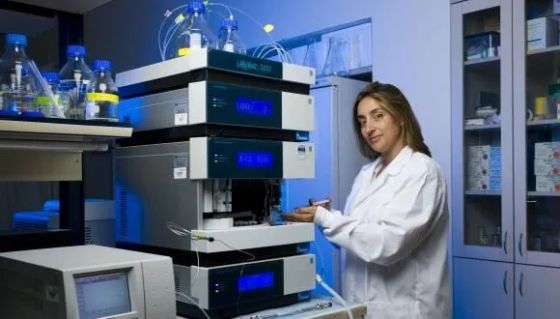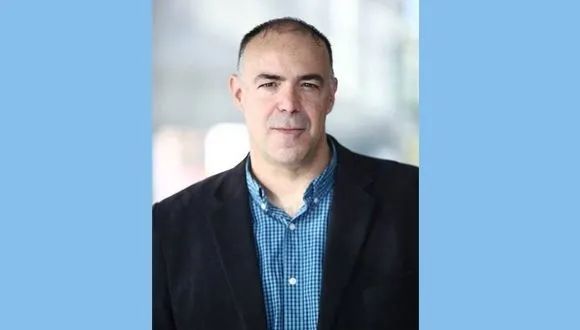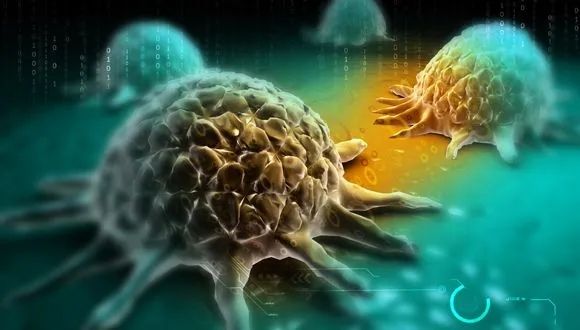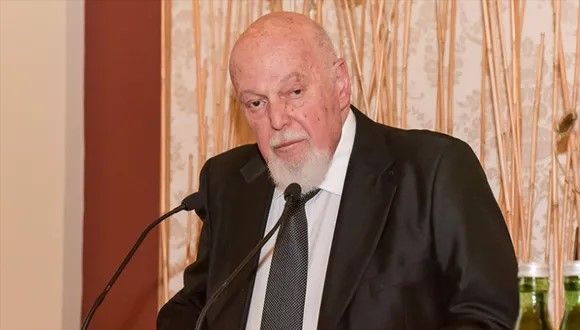
Tiny Molecule Makes Big Impact on Cancer Treatment
Newly discovered molecule may allow for more accessible and effective cancer immunotherapies.
Researchers at Tel Aviv University and the University of Lisbon have discovered a potentially new immunotherapy, which may lead to more affordable and effective treatments. Immunotherapy activates the patient’s immune system to fight cancer cells.
In this significant step in the fight against cancer, the researchers used computational and bioinformatic systems to discover a tiny molecule which can enter a solid tumor. Thanks to its low molecular weight, the molecule outperforms existing antibodies that are used as the key component in many cancer immunotherapies today. The molecule is also small enough that it may one day be administered in a pill form, saving stressful and time-consuming trips to the hospital.
Behind the groundbreaking development is an international team of researchers led by Prof. Ronit Sachi-Fainaro, Director of the Center for Cancer Biology Research and Head of the Laboratory for Cancer Research and Nanomedicine at the Sackler Faculty of Medicine at Tel Aviv University, along with Prof. Helena Florindo and Prof. Rita Guedes from the Research Institute for Medicines at the Faculty of Pharmacy, University of Lisbon. The results of the study were published in the Journal for ImmunoTherapy of Cancer.
Making Effective Immunotherapy Accessible
Immunotherapies can significantly improve patient recovery rates, without the severe side effects that accompany treatments such as chemotherapy. Immunotherapies often make use of antibodies, which are similar to proteins produced by the immune system to destroy infection-causing organisms. However, while lab-grown antibodies created to fight cancer have demonstrated some success, they are costly and not always effective.
“I believe that in the future, the small molecule will be commercially available and will make immunotherapy affordable for cancer patients.”
Considering these challenges, TAU and University of Lisbon researchers used computational, bioinformatics and data analysis tools to evaluate thousands of molecular structures. They discovered a list of potential candidates and used the best structure they found to synthesize the new, small molecule which has successfully activated immune cells against cancer cells in lab models, including patient-derived ones.
The creation of this small molecule builds on the research of Nobel Prize winners James Allison and Tasuku Honjo, who originally developed the CTLA-4 and PD-1 antibodies, respectively, which are used in today’s cancer immunotherapies. The two discovered that immune cells are essentially disabled by particular proteins found in cancer and immune cells. The protein called PD-L1 is found in cancer cells, and paralyzes immune cells by binding to a protein on these cells called PD-1. Honjo’s antibodies neutralize the PD-1/PD-L1 protein bond, allowing the immune system to attack the cancer.
“Patients will probably be able to take it at home, orally, without the need for IV administration in the hospital.”
Prof. Satchi-Fainaro, head of the TAU research team and a 2020 Kadar Family Award winner, explains that whereas lab-grown antibodies have complex structures and are expensive to produce, the new molecule was synthesized with simple equipment at a low cost. “I believe that in the future, the small molecule will be commercially available and will make immunotherapy affordable for cancer patients.”
The small molecule is also better equipped to penetrate a solid tumor than previous treatments. The antibodies used for current treatments enter a tumor via its blood vessels. “If there are fewer blood vessels in a particular area of the tumor, the antibody will not be able to get inside. The small molecule, on the other hand, diffuses, and is therefore not entirely dependent on the tumor’s blood vessels or on its hyper-permeability,” says Prof. Satchi-Fainaro. “Another advantage of the small molecule is that it may be available in a format that patients will probably be able to take at home, orally, without the need for intravenous injections in the hospital.”
This work was supported by Fundação para a Ciência e a Tecnologia, Ministério da Ciência, Tecnologia e Ensino Superior (FCT-MCTES) and by The Israeli Ministry of Health under the frame of EuroNanoMed-II, “La Caixa” Foundation, Liga Portuguesa Contra o Cancro, the European Research Council (ERC), The Israel Science Foundation, The Melanoma Research Alliance (MRA), the Israel Cancer Research Fund (ICRF) Professorship award and the Morris Kahn Foundation.
Featured image: Prof. Ronit Satchi-Fainaro in her lab
Related posts







Destroying Cancer: new drug delivery system containing RNA therapy can target cancer cells in bone marrow





Operation Guardian of the Walls: Women, Young People and Residents of the South Paid the Heaviest Price



Breakthrough Gene Therapy Offers Hope for Severe Developmental Epilepsy in Children

